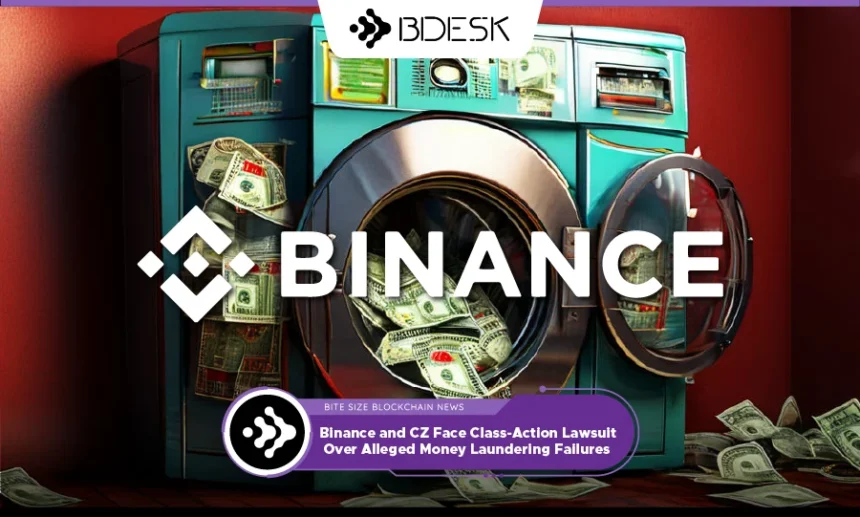- Lawsuit Details: Binance and former CEO Changpeng “CZ” Zhao are being sued by three crypto investors in a class-action lawsuit, alleging that the exchange failed to prevent money laundering, leading to the theft of their digital assets.
- Claims: The lawsuit, filed on August 16 in the U.S. District Court for the Western District of Washington, Seattle, accuses Binance of allowing bad actors to disconnect stolen assets from the blockchain ledger, making them untraceable.
- Regulatory Violations: Plaintiffs also allege that Binance operated as an unlicensed money-transmitting business in the U.S., violating the Racketeer Influenced and Corrupt Organizations (RICO) Act and bypassing anti-money laundering requirements.
Binance, one of the largest cryptocurrency exchanges globally, and its former CEO Changpeng “CZ” Zhao are under legal scrutiny as they face a new class-action lawsuit filed by three investors. The plaintiffs allege that the exchange’s failure to implement robust anti-money laundering (AML) protocols allowed thieves to launder stolen cryptocurrency, making it impossible for them to recover their assets.
The lawsuit, filed on August 16 in the United States District Court for the Western District of Washington, Seattle, claims that the stolen crypto assets were sent to Binance by the thieves. According to the plaintiffs, the platform allowed these bad actors to “remove the connection between the ledger and their digital assets,” effectively making the stolen funds untraceable. The plaintiffs argue that all cryptocurrency transactions should be permanently recorded on the public blockchain, ensuring traceability.
Furthermore, the lawsuit accuses Binance of operating as an unlicensed money-transmitting business in the United States, a violation of the Racketeer Influenced and Corrupt Organizations (RICO) Act. The plaintiffs assert that under Zhao’s leadership, Binance deliberately bypassed AML requirements to fuel its rapid growth in the American market.
This case brings to light ongoing concerns about regulatory compliance and the security of digital assets in the cryptocurrency industry. As the legal battle unfolds, it may have significant implications for how crypto exchanges operate within regulatory frameworks, particularly in the U.S.
Disclaimer:
The information provided on 13Desk is for informational purposes only and should not be considered financial advice. We strongly recommend conducting your own research and consulting with a qualified financial advisor before making any investment decisions. Investing in cryptocurrencies carries risks, and you should only invest what you can afford to lose. 13Desk is not responsible for any financial losses incurred from your investment activities.











